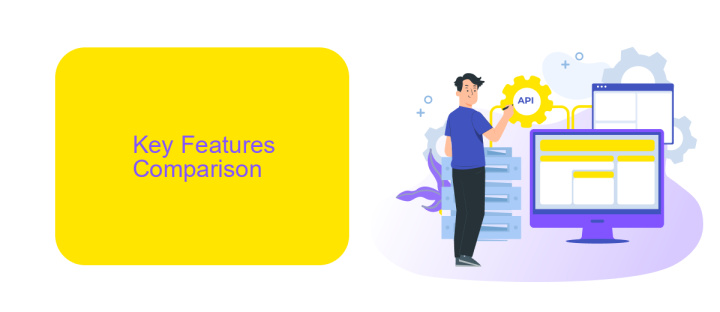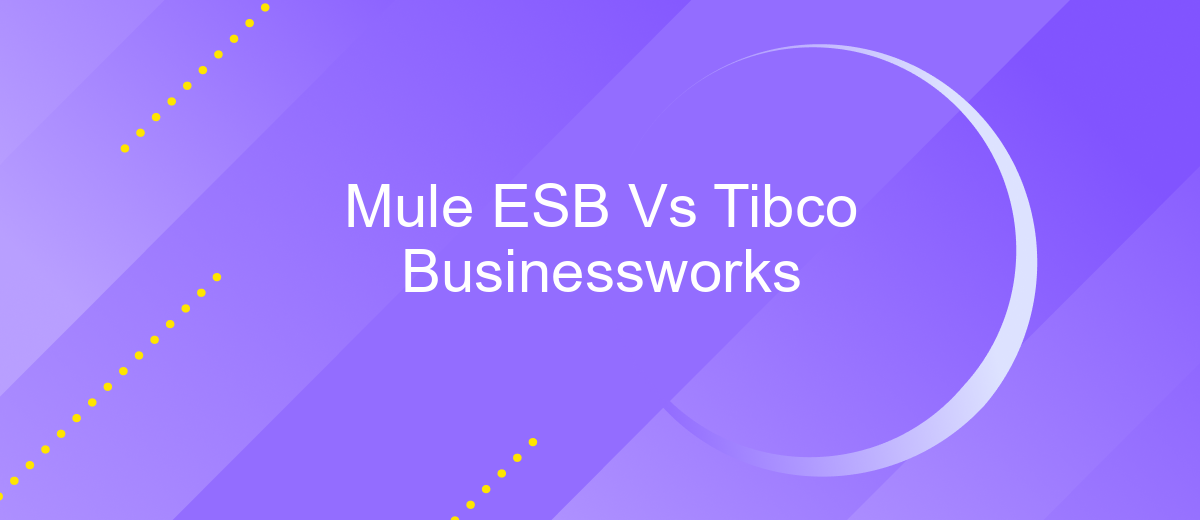Mule ESB Vs Tibco Businessworks
In the rapidly evolving world of enterprise integration, choosing the right middleware solution is crucial for seamless connectivity and efficient data management. This article compares two leading integration platforms: Mule ESB and Tibco BusinessWorks. By examining their features, performance, and ease of use, we aim to provide insights that will help organizations make an informed decision tailored to their specific needs.
Introduction
In today's rapidly evolving technological landscape, businesses are constantly seeking efficient ways to integrate various systems and applications. Enterprise Service Buses (ESBs) like Mule ESB and Tibco BusinessWorks have emerged as powerful solutions to streamline these integrations. Both platforms offer robust features, but they cater to different needs and preferences.
- Mule ESB: Known for its flexibility and open-source nature, Mule ESB allows developers to connect applications quickly and easily.
- Tibco BusinessWorks: This platform excels in providing a comprehensive suite of tools for complex enterprise-level integrations, emphasizing reliability and performance.
Choosing between Mule ESB and Tibco BusinessWorks can be challenging, as each has its unique strengths. Understanding these differences is crucial for businesses aiming to optimize their integration processes. Additionally, integration services like ApiX-Drive can further simplify the process by offering pre-built connectors and automation tools, making it easier to manage and deploy integrations seamlessly.
Key Features Comparison

Mule ESB and Tibco BusinessWorks are two robust integration platforms that offer distinct features tailored to different business needs. Mule ESB excels with its lightweight and flexible architecture, making it ideal for small to medium-sized enterprises looking for a cost-effective solution. It supports a wide range of connectors and protocols, allowing seamless integration with various systems. Additionally, Mule ESB's Anypoint Platform provides a unified solution for API management, making it easier to design, deploy, and manage APIs across the enterprise.
On the other hand, Tibco BusinessWorks is known for its comprehensive and enterprise-grade capabilities, suitable for large organizations with complex integration requirements. It offers advanced features like process automation, real-time analytics, and extensive support for cloud and on-premise environments. Tibco's strong focus on scalability and reliability ensures that businesses can handle high-volume transactions efficiently. For those looking to streamline their integration processes further, services like ApiX-Drive can be leveraged to automate data transfers and synchronize applications, enhancing the overall efficiency of both Mule ESB and Tibco BusinessWorks implementations.
Use Cases and Integrations

Mule ESB and Tibco BusinessWorks are both powerful tools for enterprise integration, each with their specific use cases and integration capabilities. Mule ESB is known for its flexibility and ability to connect a wide variety of systems, making it ideal for organizations looking to integrate multiple applications and data sources. Tibco BusinessWorks, on the other hand, excels in complex, high-performance environments where reliability and speed are critical.
- Mule ESB: Ideal for lightweight integration projects, API management, and cloud-based integrations.
- Tibco BusinessWorks: Suited for large-scale enterprise integrations, real-time data processing, and high-throughput scenarios.
- ApiX-Drive: Facilitates easy integration setup between various applications, perfect for businesses needing quick and reliable integration solutions.
Both Mule ESB and Tibco BusinessWorks offer robust integration capabilities, but their use cases differ based on the complexity and requirements of the project. ApiX-Drive can complement these tools by providing a user-friendly interface for setting up integrations, thus reducing the time and effort needed to connect disparate systems.
Architecture and Scalability

Mule ESB and Tibco BusinessWorks are robust integration platforms that offer distinct architectural approaches and scalability features. Mule ESB is built on a lightweight, Java-based architecture, enabling seamless integration across various systems. It employs a flexible, event-driven architecture that supports high availability and fault tolerance. Tibco BusinessWorks, on the other hand, utilizes a component-based architecture that facilitates the orchestration of complex business processes and services.
Scalability is a crucial aspect of both Mule ESB and Tibco BusinessWorks. Mule ESB offers horizontal scaling through clustering and cloud-based deployment options. Tibco BusinessWorks also supports horizontal scaling and leverages its ActiveMatrix platform for enhanced performance and scalability.
- Mule ESB: Lightweight, event-driven architecture
- Tibco BusinessWorks: Component-based architecture
- Mule ESB: Supports clustering and cloud deployment
- Tibco BusinessWorks: Utilizes ActiveMatrix for scalability
Both platforms provide robust tools for managing integrations, such as ApiX-Drive, which can streamline the configuration and deployment of integration services. ApiX-Drive's user-friendly interface and extensive connector library make it a valuable asset for optimizing integration workflows on both Mule ESB and Tibco BusinessWorks.
Pricing and Support
Mule ESB offers a flexible pricing model that can cater to various business needs, ranging from small enterprises to large corporations. They provide a subscription-based pricing structure, which includes different tiers based on the number of users and the level of support required. MuleSoft also offers a free trial for users to explore its capabilities before committing to a purchase. On the other hand, Tibco BusinessWorks operates on a similar subscription model, but their pricing tends to be on the higher end, reflecting the extensive features and robust support they offer. Tibco's pricing is generally more suited for larger enterprises with complex integration needs.
When it comes to support, both Mule ESB and Tibco BusinessWorks offer comprehensive support packages, including 24/7 customer service, extensive documentation, and community forums. MuleSoft provides various support plans ranging from standard to premium, ensuring that businesses can get the help they need based on their budget. Tibco also offers premium support services, with dedicated account managers and faster response times. For businesses looking to streamline their integration processes, services like ApiX-Drive can be an excellent addition. ApiX-Drive simplifies the integration setup, allowing users to connect various applications effortlessly, thereby complementing the capabilities of both Mule ESB and Tibco BusinessWorks.
- Automate the work of an online store or landing
- Empower through integration
- Don't spend money on programmers and integrators
- Save time by automating routine tasks
FAQ
What are the main differences between Mule ESB and Tibco BusinessWorks?
Which platform is easier to use for beginners?
How do both platforms handle API management?
What are the deployment options for Mule ESB and Tibco BusinessWorks?
Can I use a third-party service to help with integration and automation for either platform?
Apix-Drive is a simple and efficient system connector that will help you automate routine tasks and optimize business processes. You can save time and money, direct these resources to more important purposes. Test ApiX-Drive and make sure that this tool will relieve your employees and after 5 minutes of settings your business will start working faster.


